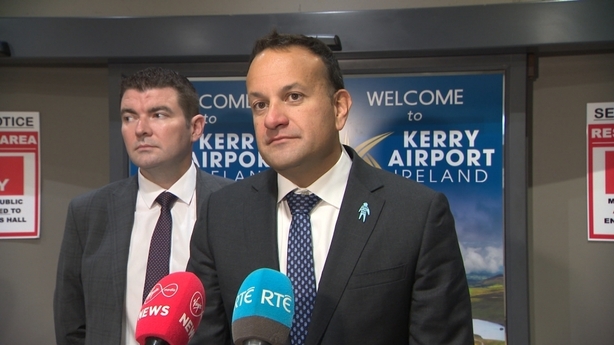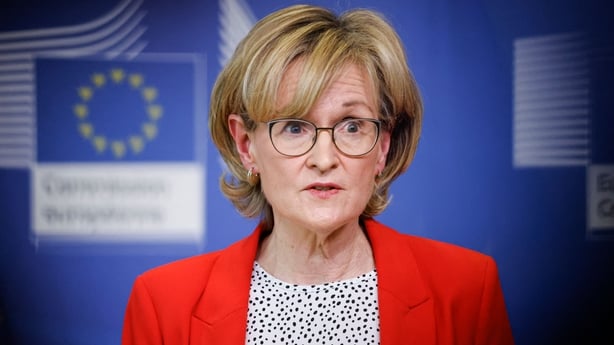The Taoiseach has committed that the Government, as an ESB shareholder, will use the company's dividend to alleviate the cost of energy for households and businesses.
Speaking in Co Clare today, Micheál Martin said as the Government is the shareholder in the ESB on behalf of the Irish people, it has the capacity to recover monies through the dividend.
According to the group's half year results, profit after tax and exceptional items came in at €390 million.
That was more than three times the profit of €128 million that it made in the same period last year.
Given the scale of the profits on the back of the energy crisis, he said the Government can look forward to a much higher dividend than it would have been prior to the crisis.
He said it can use this bigger dividend to underpin efforts to reduce pressures on households and to protect jobs.
But he also said the Government has a surplus going into the end of the year which will provide "firepower" in the medium term to enable it to help people who need help because of rising electricity bills, rising energy costs and general inflation that is now part of the economy because of the war on Ukraine.
He said this is in addition to the huge problems in the rest of Europe because of the issues around gas supply also brought about by the war and the economic pressures that are coming from it.

Meanwhile, the Tánaiste has said it is "right and proper" that the Government should take back some of the big profits that energy companies are making.
Leo Varadkar said in the case of the ESB, the Government has a few options to do that including through a windfall tax or taking a bigger dividend from the company.
''We would use that money then to bring down costs for families and businesses and that is what we intend to do," Mr Varadkar said.
The Tánaiste also said the way electricity is linked to the price of gas needs to change and that is being worked on at an EU level which will ultimately help bring down energy bills.

Mr Varadkar also said an "expansionary Budget" will not fuel further hikes in inflation, although he acknowledged that did happen during the Celtic Tiger period of the mid-2000s.
"I think we're actually in a very different situation now," Mr Varadkar said.
"Interest rates are rising, which means credit is going to be more expensive for people and also billions of euros are leaving the country every year because we have to buy all our oil and gas from overseas.
"We're seeing billions being sucked out of the economy for that reason and that’s why I think if we stay within the parameters of what we’ve set out, an expansionary budget wouldn’t be inflationary."
Windfall tax for each EU country to decide - McGuinness
Earlier the EU Commissioner for Financial Services, Financial Stability and Capital Markets Union said a windfall tax on energy companies in Europe is an instrument that individual member states will have to implement themselves.
Mairead McGuinness said each member state "will have to calculate their own figures".
Speaking on RTÉ's Today with Claire Byrne, the commissioner said: "What we have is an instrument rather than a budget for each member state. It then is up to the member state to calculate their own figures.
"The whole idea behind it is that at a time when households and businesses are really suffering from astronomical energy bills, and those companies who are producing energy renewables are making significant and unexpected profits … is to redistribute those within the system.
"So it is each up to each member state to calculate what might be there, but it will be significant in all member states because it means that rather than the price continuing to grow, that there is now a mechanism to say beyond this, there will be a redistribution of the payments."

The commissioner also said that EU member states are being encouraged to target support for vulnerable families and businesses and that said fairness and equality need to be employed.
"You have to analyse whether a price cap what it would yield, and then it's the targeting that makes the difference," she said.
"If everybody gets the same amount, there are questions around about equity and fairness.
"In this crisis we are encouraging member states to look at the targeting of support to those families and businesses that need them the most."
Energy credits 'part of the solution' - Coveney
Minister for Foreign Affairs Simon Coveney has said energy credits will be "part of the solution" to rising energy costs being looked at by the Government in Budget 2023.
Speaking on RTÉ's Morning Ireland, Mr Coveney said "nothing has been ruled out" when asked whether he was in favour of energy caps or credits.
"I don't think you can rule either out. But certainly, energy credits will be part of the solution," he said.

